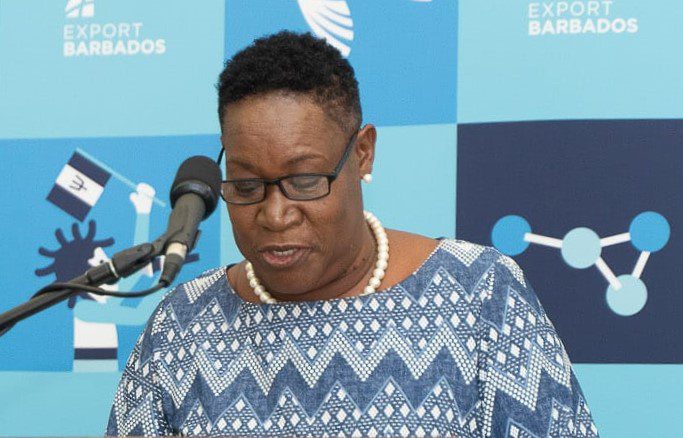
Barbados’ fishing industry is well on its way to capitalising on new technological advancements to move the sector forward, increasing the safety of fishermen at sea, and improving the marketability of local fish in international markets.
This follows the launch of Project DigiFish by the Barbados Environmental Conservation Trust (BECT) and the Barbados National Union of Fisherfolk Organisations (BARNUFO), as part of the activities to mark the United Nations World Oceans Day on June 9, celebrated under the theme: Revitalisation: Collective Action for the Ocean.
The DigiFish project is a one-year project funded by the BECT and supported by Pelagic Data Systems. It promotes the use of digital technologies and innovative data analytical methods to support the application of the ecosystem approach to fisheries in Barbados.
Speaking during the launch, Chair of BECT, Neysha Soodeen, said the project would revolutionise the fishing industry through the use of technology.
“We said yes to revolutionising the fisheries industry in Barbados by introducing new digital technologies, … exploring new data to better inform Government policy and improve fisheries management, … and improving the livelihoods and safety of our fishing communities across Barbados. It is absolutely fascinating that one small device can be so powerful to achieve all that,” she said.
She explained that US$30,000 was donated by the Edmiston family to launch the project, resulting in 30 trackers being placed on 30 vessels during the first pilot project. However, there is a waiting list as fisherfolk who want to get involved in the project have also requested tracking devices for their vessels.
“BECT will continue to support this work to secure additional devices for fisherfolk on island,” Ms. Soodeen assured, while noting that the project, which got under way five months ago, was already a “game changer”. She added that the additional devices would also reflect better representation and data of fishing activities.
Stating that the BECT supported environmental projects in Barbados since 2019, Ms. Soodeen explained that the mission supported organisations, experts, individuals and associations who were working to protect and restore the natural environment.
“We believe if our efforts at BECT are focused on supporting local resources aimed at environmental sustainability, then Barbados will have effective solutions that can stand in the face of the global climate crisis to provide a hopeful future for our country, our home,” she said, noting it was the intention to raise more funds to outfit more vessels with devices.

President of BARNUFO, Vernel Nicholls, explained that the devices brought significant benefits to the fishing industry, including helping fishers to know where to fish efficiently and effectively, thereby saving fuel; better marketing of their catches; targeting areas where maximum profits could be gained; promoting safety of life at sea; deterring vessel theft; allowing boat owners to track vessel locations, and helping fisherfolk comply with fishing rules and regulations.
She added that the devices also supported the work of the fisheries management authorities in a number of ways, such as monitoring and analysing fleet behaviour; mapping protected mammals to determine if fishing occurs in the same space, and providing data to support marine spatial planning. They also help to reduce the cost of search and rescue operations, and combat illegal unreported and unregulated fishing.
“It is our hope that this project will continue to foster productive partnerships between BARNUFO, the Fisheries Division, the Barbados Coast Guard and the Coastal Zone Management Unit in applying integrated data solutions to support marine spatial planning, blue economy development and fisheries management,” Ms. Nicholls pointed out.
The President told those present that they were already exploring ways to scale up the project and get support for additional devices as well as monetise the data to determine how it can support the development of affordable vessel insurance premiums.
“We are also exploring synergies with UNDP’s BlueDIGITAL project to support the BlueTRACE and BlueDATA portals. Future development will see us being able to determine Fish Aggregating Device (FAD) use patterns; calculate catch per unit effort and map fishing effort to build a strong case for blue justice by allocating fishing priority zones in marine managed areas,” Ms. Nicholls disclosed.
